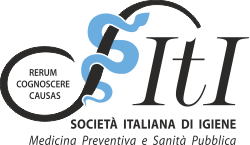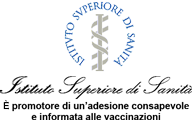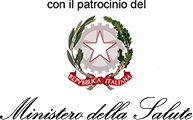Worrying data
Last September during the national congress of Paidòss, the National Observatory on Child and Adolescent Health, research by Datanalysis (a public opinion research institute which specialises in health) was presented. It involved 1,000 parents of children up to 6 years of age, interviewed between May and June 2015. The aim of the survey was to investigate the perception of vaccines in the wake of news reports of, among other things, the withdrawal of an anti-flu vaccine for supposed adverse events and the verdicts on the links with autism. The picture that emerges from the survey is very worrying. Of the parents interviewed, 33% believe that vaccines are more dangerous than the diseases they prevent, while only 25.4% are convinced that they are useful and important, and a further 36.6% believe that their effectiveness depends on the vaccine and the pathologies. According to 25% not all vaccines are necessary, 19.6% feel that there are too many, for 17% so many vaccines administered together can cause problems, 12% believe that the composition of the vaccine may be harmful, 8% fear long-term damage, another 8% fear side effects, 6% believe that vaccine efficacy is yet to be proven and 3.9% think that the vaccine schedule is difficult to adhere to. The parents who had their children vaccinated did not do it correctly. More than half (54.3%) had all doses administered only for mandatory vaccinations, while only 15% also for non-compulsory ones, and one in 4 had none. The survey follows a similar one carried out by Paidòss in 2014 which highlighted parents' fear of the adverse side effects of vaccinations, fueled by the news found on anti-vaccinations websites. The web represents a source of information for 90% of the parents interviewed. A few months ago the news, issued by the Istituto Superiore di Sanità and shared by the media, reported a worrying drop in vaccination coverage in Italy. This fear of vaccination, which unfortunately affects not only parents but also sometimes healthcare professionals themselves, doctors included, is unjustified and is based on unfounded beliefs with no scientific evidence.
False beliefs
The survey data shown above reflect the reasons why many people are against vaccinations, which can be found on almost all anti-vaccination websites. It is argued that hygiene and a healthy lifestyle are sufficient to protect us from infectious diseases, that too many vaccines are combined in the same injection, that vaccines are given to children who are too young weakening their immune system, that they cause serious illnesses such as autism or cot death (SIDS). In short, it is claimed that vaccines are not needed and that they are purchased by the State and given to children mainly as a favour to the pharmaceutical industry. In the bibliography below, you can find references and links to documents and sites that explain in detail why these statements are false, in light of the available evidence1,2. It is therefore a lack of or inaccuracy of information that feeds these prejudices. For example, it is true that at birth and for a few months afterwards the immune system is not yet perfectly mature, but the vaccines are designed to activate the part that is already able to respond adequately. Delaying the start of the vaccination cycle means prolonging the period in which the child is not protected against certain potentially serious diseases that are frequent in the first months of life, such as whooping cough and meningitis. Although there may seem to be a lot of them, vaccines have become very specialised and evolved over time, so as to engage only a small part of our defence system’s capacity. For example, the bacterium that causes pertussis has more than 3,000 substances that function as antigens, while the pertussis vaccine has only three, and the number of antigens present today in one hexavalent vaccine is twenty times lower than in the trivalent vaccine administered in the 1980s.
Safe vaccines
There is not enough room in this article to discuss all of these false myths in detail. We therefore limit ourselves to some observations that mainly concern the safety of vaccines. Vaccines are drugs and like all drugs can cause adverse events. In medicine, drugs are often used in primary prevention, to prevent pathologies that the patient does not suffer from. Indeed, nobody refuses to take, for example, an acetylsalicylic acid tablet to prevent heart failure or heparin to prevent thrombosis after surgery. It is rightly believed that the drug is effective in preventing these diseases and that, despite adverse reactions, the benefit/risk profile is favourable. This concept is even more valid for vaccines, whose benefit/risk profile is strongly favourable. The risk associated with infectious diseases is high. Fatal cases can reach 1/3,000 for measles, 3/100 for tetanus, 1/20 for diphtheria and pertussis, and 5/100 for poliomyelitis. Serious complications include, for example, paralysis due to polio infection, liver cirrhosis due to hepatitis B infection, deafness due to mumps infection, pneumonia from varicella infection. In contrast, vaccines are drugs which have an excellent risk profile. In Veneto, the Regional Program for pre-vaccination consultation and surveillance of adverse events ,“Canale Verde”, has been active since 1993. In over twenty years of activity, with almost thirty million doses of vaccine administered in the region, no fatal case has ever been reported in vaccinated children and adults and the serious events were 1.5 per 100,000 doses administered, predominantly febrile seizures which resolved in a short time without sequelae. The most frequent adverse reactions were mild local reactions at the injection site or fever.
The story with autism
Why then is there this excessive fear of vaccinations? The most serious adverse event most falsely associated with vaccination is autism, which rose to fame especially in the late 1990s following a study published in The Lancet by an English doctor, Andrew Wakefield3. The study was immediately criticised for its scientific methodology and a few years later an investigation by a British journalist showed that the author had altered and falsified the data to skew the research results. The other authors of the research retracted their conclusions, the publication was withdrawn in 2010 and Wakefield was disbarred from the council of doctors and could no longer practice in Great Britain. Since then, dozens of studies published in very prestigious journals have presented data that have refuted this association. Some studies have brought evidence to support the action of environmental or genetic factors that act before birth, during foetal development in the uterus, in favouring the onset of autism. Many others have demonstrated the lack of an association between vaccines and autism in epidemiological studies. In 2014, Vaccine published a meta-analysis4 which evaluated 5 cohort studies, with a total of 1,256,407 children, and 5 case-control studies, with a total of 9,920 children. Neither type of study provided any evidence of an increased risk of autism or autism spectrum disorders linked to vaccination. The analysis also evaluated the possible role of components such as thiomersal or mercury, without showing any relationship. In 2015 another important study5 was published in JAMA. The study was carried out on 95,727 children, all with older siblings, some of whom were autistic. Even this study, while including high-risk individuals such as family members of people with autism, excluded an association between vaccination and autism spectrum disorders. Despite all of this proof, the association between autism and vaccines continues to be repeated on anti-vaccination websites, based on a few works published in minor journals reporting anecdotal cases or distorting the results of more important studies in alleged revisions. The anti-vaccinators never cite the large-scale studies like those mentioned above, but instead take up the individual reports of autism made in the spontaneous reporting systems (all of which are unrelated to the vaccine vigilance centres) or the judgments made by judges who accept the compensation request of parents with autistic children. . Recently the Bologna Court of Appeal overturned a controversial 2012 ruling by a Rimini judge who had awarded 200,000 euros in compensation to a couple from Romagna whose child had been vaccinated by the ASL in 2002 and subsequently received an autism diagnosis. The parents had put forward Wakefield's study to support their thesis.
Conclusions
The web is a very powerful information source but it is also the place where fake news can most easily circulate. Sources are rarely mentioned, the amount of content is immense (because it can be produced by so many people), the reliability and independence of website authors is difficult to assess. It is not easy for the non-expert parent to find their way around so much information and to distinguish what is truthful from that designed to muddy the waters or to propel the interests of alternative medicines. Last but not least, a comment on the often-repeated accusation that public health regularly recommends vaccines in order to generate income for pharmaceutical companies. The situation regarding conflicts of interest is certainly an important and complicated topic in medicine. But sometimes a little reasoning is enough to understand the absurdity of these accusations. The public service that would give companies money by buying useless vaccines is the same one that unfortunately does not have the resources to buy the new drugs for hepatitis C for all the patients who are in need of it; it is the same one that tries to limit doctors and patients in the prescribing and consumption of drugs such as gastroprotectors or benzodiazepines that entail a much higher cost than vaccinations, and it is the same one that is fighting to extend the use of generic drugs and lowering costs. However, it is increasingly important that health professionals involved in the field of vaccination, regional and national authorities, and researchers commit to a correct and transparent communication of information on the efficacy and adverse events of vaccinations in the absence of conflicts of interest.



